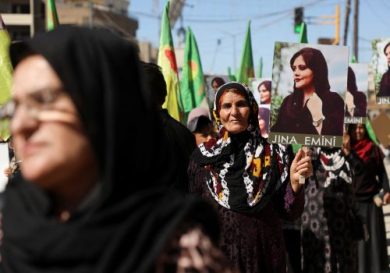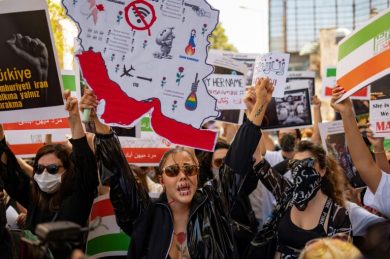The Islamic Revolutionary Guard Corps (IRGC) has developed a sophisticated cyber warfare apparatus designed to suppress dissent, manipulate information, and spread disinformation. Over the years, the IRGC has expanded its cyber operations to monitor activists, disrupt communication networks, and launch cyberattacks on critical infrastructure both inside and outside Iran. These tactics form part of a broader strategy to maintain control over Iranian society and intimidate international opponents. This article explores how the IRGC uses cyber warfare to undermine digital freedom, the impact on activists and civilians, and international efforts to counter these tactics.
1. The Rise of the IRGC’s Cyber Capabilities
The IRGC began investing in cyber operations in response to increased internet activism and international digital threats. The Iranian government recognized the internet’s power to mobilize dissent, especially during events like the 2009 Green Movement, which saw millions of Iranians using social media to organize protests.
A. Establishing Cyber Units
• The IRGC created specialized cyber divisions, including the Cyber Defense Command and Basij Cyber Units.
• These units focus on monitoring online activity, hacking opposition accounts, and countering perceived cyber threats.
B. Expanding Cyber Influence
The IRGC has collaborated with state media, intelligence agencies, and tech experts to develop a comprehensive strategy for digital control.
2. Tactics Used by the IRGC to Suppress Digital Freedom
A. Internet Blackouts and Censorship
During protests and political crises, the IRGC enforces nationwide or localized internet shutdowns to prevent communication among activists and disrupt news reporting.
• Example:
During the 2019 fuel price protests, the Iranian government implemented a near-total internet blackout, cutting off Iranians from the global web for over a week.
• Impact:
Internet shutdowns isolate activists, hinder international reporting, and prevent the spread of protest footage.
B. Cyber Surveillance and Espionage
The IRGC heavily monitors social media platforms, messaging apps, and email services to track activists, journalists, and dissidents.
• Techniques:
• Phishing attacks to steal passwords and access accounts.
• Spyware installation on mobile devices to monitor conversations.
• Collaboration with telecom companies to collect user data.
C. Hacking and Cyberattacks
The IRGC has launched cyberattacks targeting both domestic and foreign entities, including:
1. Activists and Opposition Leaders
• Hackers linked to the IRGC have breached encrypted communication channels to expose and intimidate activists.
• Leaked personal data is often used to blackmail or discredit opponents.
2. Foreign Governments and Companies
• In 2012, Iranian hackers attacked Saudi Aramco, wiping data from over 30,000 computers.
• The IRGC has targeted Israeli infrastructure and U.S. financial institutions in retaliation for perceived threats.
3. Media Platforms
• The IRGC engages in denial-of-service (DDoS) attacks on independent news outlets, silencing alternative voices.
D. Disinformation Campaigns
The IRGC operates thousands of fake social media accounts to spread state propaganda and disinformation.
• These campaigns aim to:
• Discredit activists by spreading false accusations.
• Blame foreign powers for protests and unrest.
• Promote regime-friendly narratives in both domestic and international media.
• Example:
In 2020, tech companies identified and removed IRGC-linked accounts engaged in coordinated disinformation efforts targeting the U.S. and Middle Eastern countries.
3. Impact on Activists and Civil Society
A. Fear and Intimidation
The IRGC’s cyber tactics have created an atmosphere of fear, where activists and ordinary citizens worry about being watched or tracked online.
• Arrests are often based on social media posts criticizing the government.
• Activists report being harassed and threatened after their accounts are hacked.
B. Restrictions on Free Expression
By censoring platforms and blocking websites, the IRGC stifles freedom of speech and access to information.
• Platforms like Twitter, Facebook, and Telegram are frequently blocked, while users rely on VPNs to bypass censorship.
• Independent journalists face digital repression, making it harder to report on human rights abuses.
C. Disruption of Activist Networks
Internet blackouts and hacking attacks disrupt communication channels used by protest organizers, weakening the coordination of demonstrations.
4. International Responses to the IRGC’s Cyber Warfare
A. Sanctions on IRGC Cyber Units
The United States, European Union, and United Kingdom have imposed sanctions on IRGC cyber officials and front companies involved in cyber operations.
• Sanctions target:
• Cyber Command leaders responsible for surveillance and hacking campaigns.
• Companies supplying cybersecurity technology to Iran’s government.
B. Cybersecurity Partnerships
Countries affected by IRGC cyberattacks have strengthened cyber defense alliances, focusing on:
• Intelligence sharing to counter Iranian hacking efforts.
• Enhancing cyber defense infrastructure to protect critical assets.
C. Support for Digital Freedom
International organizations, including Amnesty International and Access Now, have launched initiatives to protect activists by providing:
• Digital security training and tools like encrypted messaging apps.
• Advocacy for internet freedom and global action against state censorship.
5. The Path Forward: Countering the IRGC’s Cyber Warfare
A. Expanding Sanctions and Legal Action
Governments should implement targeted sanctions against IRGC cyber operatives and prosecute cybercrimes under international law.
B. Supporting Digital Rights
• Tech companies must prioritize security for users in authoritarian states.
• Expanding access to anti-censorship technology like VPNs and secure communication platforms is essential.
C. Raising Awareness
• Global campaigns can highlight the IRGC’s cyber tactics, putting pressure on Iran’s regime.
• Supporting independent Iranian media helps counter disinformation narratives.
Conclusion
The IRGC’s cyber warfare tactics are a direct assault on digital freedom, aimed at maintaining control through surveillance, censorship, and intimidation. By targeting both domestic activists and foreign adversaries, the IRGC has become a significant threat to global cybersecurity.
Join Our Newsletter!
Stay informed with the latest updates, news, and ways to take action in the fight for justice and global security. Sign up now to get updates delivered straight to your inbox!





